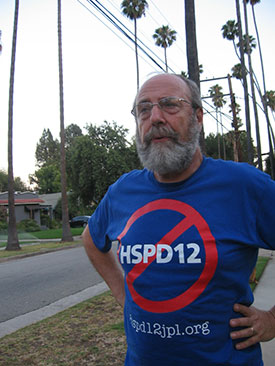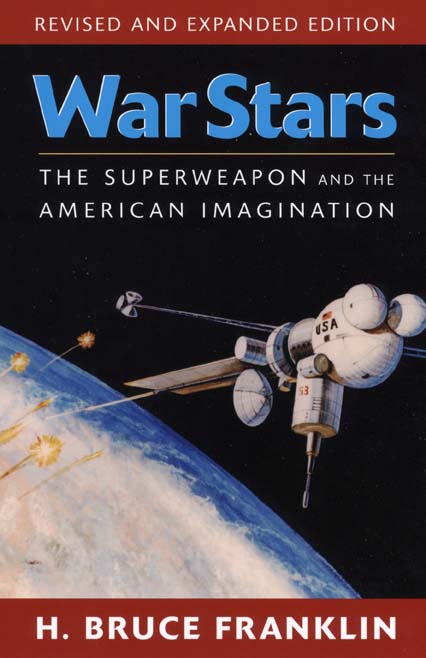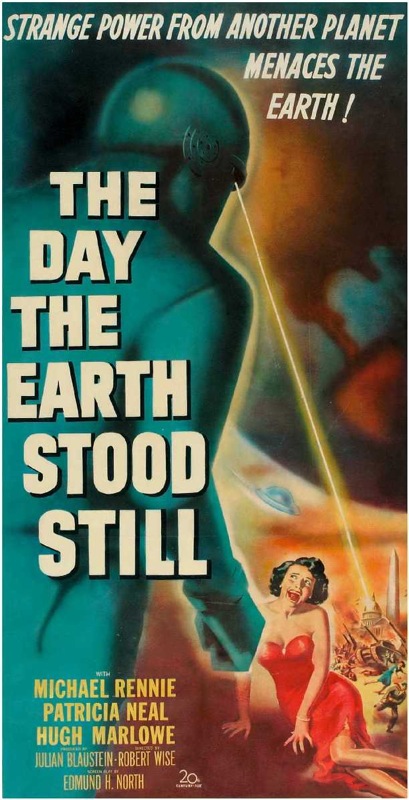Podcast: Play in new window | Download
- CCR Statement On Hamdan Case
- Salim Hamdan Case Update
- National Lawyers Guild: Execution of Jose Medillin
- Guantanamo Detainee Files First Petition Against The U.S.
- EFF Battles Dangerous Attempts to Circumvent Electronic Privacy Law
- NSA Spying – CCR v Bush update
Jet Propulsion Engineers Win Injunction Over “Unconstitutional†Background Checks
Last year, twenty-eight senior scientists and engineers at Jet Propulsion Laboratory challenged the United States government and the California Institute of Technology in a lawsuit claiming that NASA’s new background investigations were unconstitutional. The scientists include members of the Mars Rover program are fighting Homeland Security Presidential Directive 12 or (HSPD-12). This directive requires all federal employees and contractors to “voluntarily” sign a form allowing the government the right to investigate them “without limit” for two years- even if they leave government work during that time. NASA and Caltech employees were told, non-compliance will result in immediate termination.
In the interview Bob Nelson describes the drama in a Ninth Circuit Court decision: the Ninth Circuit Court of Appeals issued a temporary injunction at 4:40pm. The same day around 5pm, JPL managers were approaching the several hundred JPL employees who were non-compliant and reading them an order saying if you don’t comply by Monday, we will advertise your job. You have until 5pm today to decide.
A few minutes before 5pm Bob Nelson brought in a faxed copy of the order by the Ninth Circuit Court judge and told JPL managers that what they’ve done may be illegal, if you have a problem, consult your lawyer. The Ninth Circuit ruled that NASA and the DOJ were out of order and that Caltech was in the wrong for serving as an enforcer.
The lawsuit caused a lot of interest within Caltech alumni who then wrote to the board of trustees and later began to fund the lawsuit. Nelson says, “You can fight the system of a completely entrenched bureacracy that constantly rewrites the rule in their favor.”
Guest – Robert Nelson, Senior Research Scientist at Jet Propulsion Laboratories and lead plaintiff in the JPL case.
—
H.Bruce Franklin – War Stars: The Super Weapon and The American Imagination
Today we welcome cultural historian H Bruce Franklin, author of many books including The Most Important Fish In The Sea and one we will talk with him today titled War Stars: The Superweapon and The American Imagination. One review writes “this book reveals how and why the American quest for the ultimate defensive weapon, guaranteed to end all war and bring universal triumph to American ideals has led to the creation of forces increasingly capable of automated global annihilation.”
H.B. Franklin Interview Notes:
- Grotesque Fantasy: PNAC, Pox Americana and Superweapons
- A typical Trident class submarine carries 142 thermo-nuclear weapons
- War Stars are nuclear weapons, same physics of a star.
- Roosevelt urged leaders to avoid barbaric war strategy of bombing civilians.
- “How did we get to a place where we built weapons capable of destroying our own society, human civilization, possibly exterminating the human species, while always thinking that we’re making ourselves more secure, bringing global peace, bringing democracy to the world?”
Franklin explores the influences of the collective imagination in movies, novels and stories from obscure pre-World War I fiction to modern classics such as Slaughterhouse Five and Dr. Strangelove. War Stars interweaves culture, science, technology and history to demonstrate how the American consciousness shapes ingenious new superweapons while creating its antithesis in art.
Guest – Bruce Franklin, American cultural historian who has authored or edited nineteen books on a range of subjects. As of 2008, he is the John Cotton Dana Professor of English and American Studies at Rutgers University in Newark, New Jersey. He first attained prominence as a Melville scholar and has served as president of the Melville Society. His award-winning books and teaching on science fiction played a major role in establishing academic study of the genre. His books on American prison literature have been said to open an entirely new field of study. His most recent work has focused on relations between the marine environment and American cultural history.
——————————————————————————————-



